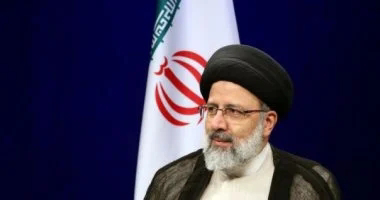According to Article 131 of the Iranian Constitution, in case of the death, removal, resignation, absence, or illness of the President for more than two months, or in case the presidential term ends without electing a new president due to obstacles or other reasons, the First Deputy to the President assumes the functions of the President with the approval of the leadership.
As per the Iranian Constitution, a committee composed of the Speaker of the Islamic Consultative Assembly, the Head of the Judiciary, and the First Deputy to the President must prepare for the election of a new president within a maximum period of 50 days. In case of the death or inability of the First Deputy to perform his duties, or if there is no First Deputy to the President, another person will be appointed by the leadership.
The First Vice President of Iran, Mohammad Mokhber, assumes the presidency in place of Raisi and exercises his powers with the approval of the Supreme Leader. Raisi tragically passed away in a helicopter incident in East Azerbaijan province, as officially announced by Iran.
Who was the late Iranian President Ebrahim Raisi?
Born in Mashhad city in November 1960, Raisi began holding public positions at a young age. He was appointed as a prosecutor in Karaj city near Tehran while still in his twenties shortly after the victory of the Islamic Revolution in 1979.
Raisi spent nearly three decades in various roles within the judicial structure of the Islamic Republic, serving as Tehran's prosecutor from 1989 to 1994 and as Deputy Chief Justice from 2004 to 2014 before being appointed as the country's prosecutor general.
Married to Jomhouriyyat al-Hoda, a professor of educational sciences at Shahid Beheshti University in Tehran, they have two daughters with advanced degrees. This family connection made him a relative of Hojatoleslam Ahmed al-Hoda, Friday Prayer Imam and representative of the Supreme Leader in Mashhad, one of Iran's major cities and a holy city for Shia Muslims housing the shrine of Imam Reza.
At 63 years old, Raisi assumed the presidency of Iran in August 2021 after winning the June 2021 elections with 17.95 million votes out of 28.6 million votes cast by voters, securing approximately 62% of the votes in the first round with a voter turnout of 48.8%, marking the lowest since the Iranian Revolution.
Who is Foreign Minister Hossein Amir-Abdollahian?
Born in 1964 in Damghan city in Semnan province near Tehran, Amir-Abdollahian got married in 1994 and has a son and daughter. After completing his primary studies in his hometown and moving to Tehran, he joined the International Relations College under Iran's Ministry of Foreign Affairs in 1988. Four years later, he obtained his bachelor's degree before deciding to continue his academic studies at Tehran University in the same field. He graduated with a master's degree in 1996 and later earned his Ph.D. in International Relations from Tehran University in 2000.
He started his diplomatic career before serving as Deputy Ambassador at his country's embassy in Baghdad from 1997 to 2001. Upon his return to Iran, he became Deputy Director for Gulf Affairs at the Foreign Ministry for three years.
Known for his close ties with the Revolutionary Guards and their leaders, he was appointed as Deputy Special Assistant to the Foreign Minister for Iraqi Affairs following the U.S. invasion of Iraq in 2003 until 2006.
In his final year in this role, he became a member of the Political-Security Committee for nuclear negotiations with the European Troika (Britain, Germany, and France).
He successfully restored relations between Iran and Riyadh after a seven-year hiatus.
After Operation Quds Storm in October 2023, Amir-Abdollahian conducted a regional tour covering Baghdad, Beirut, Damascus, and Doha, discussing preemptive moves by the Resistance Axis to halt Israel's genocidal war on Gaza for the first time.

